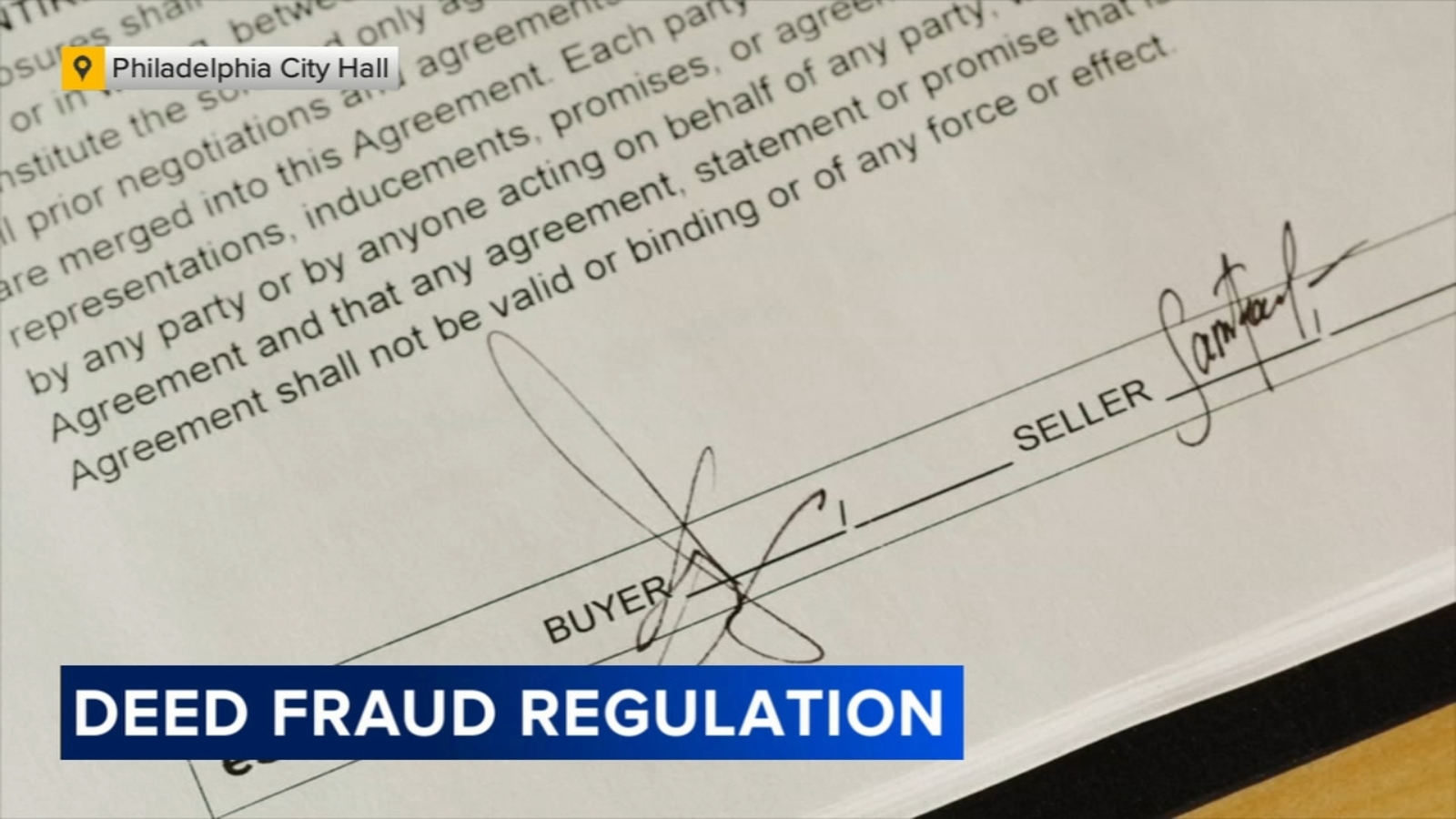Technology
Philadelphia Launches System to Combat Home Deed Fraud

The City of Philadelphia has unveiled a new initiative aimed at safeguarding homeowners against deed fraud. Mayor Cherelle Parker announced the implementation of an automated vital-status verification system designed to alert officials when an attempt is made to transfer ownership of a property still registered in the name of a deceased individual. This innovative approach seeks to protect vulnerable homeowners from fraudulent activities that can jeopardize their properties.
This system will automatically flag any newly signed deeds and promptly submit them to the Department of Records. If a deed is connected to a homeowner who has passed away, it will be highlighted for further examination. This proactive measure aims to enhance transparency and security within property transactions, especially in a city that has seen a rise in fraudulent claims over the past few years.
Protecting Homeowners Through Technology
The decision to implement this verification system comes in response to increasing concerns over the prevalence of deed fraud. In recent years, homeowners have reported instances where individuals, often unknown to them, have attempted to illegally transfer property titles. Such fraudulent practices not only threaten the financial security of homeowners but also undermine the integrity of the real estate market.
According to city officials, this new system is part of a broader strategy to improve public trust in property transactions. As Mayor Parker emphasized during the announcement, “We are committed to protecting our residents and ensuring that their homes remain their safe havens.” The initiative reflects a growing recognition of the need for innovative solutions to combat real estate fraud.
The automated verification system is expected to be operational within the coming months, allowing for a seamless integration into existing property transaction processes. Homeowners can also anticipate receiving notifications regarding any changes to their property status, further empowering them to monitor their assets proactively.
A Step Toward Greater Accountability
The development of this system marks a significant advancement in the city’s efforts to combat fraud. By leveraging technology, Philadelphia aims to create a more secure environment for homeowners, particularly those who may be unaware of the risks associated with deed fraud. This initiative not only seeks to protect individual homeowners but also aims to enhance the overall reliability of the property registry.
As the system rolls out, city officials will monitor its effectiveness and make adjustments as necessary to ensure it meets the needs of the community. The goal is to provide a robust defense against fraudulent attempts while also fostering a culture of accountability within the real estate sector.
In conclusion, Philadelphia’s new automated vital-status verification system represents a proactive step in protecting homeowners from the threat of deed fraud. By combining technology with attentive governance, the city is taking meaningful action to safeguard the properties of its residents and uphold the integrity of its housing market.
-

 Technology5 months ago
Technology5 months agoDiscover the Top 10 Calorie Counting Apps of 2025
-

 Technology3 weeks ago
Technology3 weeks agoOpenAI to Implement Age Verification for ChatGPT by December 2025
-

 Health3 months ago
Health3 months agoBella Hadid Shares Health Update After Treatment for Lyme Disease
-

 Health3 months ago
Health3 months agoAnalysts Project Stronger Growth for Apple’s iPhone 17 Lineup
-

 Health4 months ago
Health4 months agoErin Bates Shares Recovery Update Following Sepsis Complications
-

 Technology5 months ago
Technology5 months agoDiscover How to Reverse Image Search Using ChatGPT Effortlessly
-

 Technology3 months ago
Technology3 months agoElectric Moto Influencer Surronster Arrested in Tijuana
-

 Technology5 months ago
Technology5 months agoMeta Initiates $60B AI Data Center Expansion, Starting in Ohio
-

 Technology2 months ago
Technology2 months agoDiscover 2025’s Top GPUs for Exceptional 4K Gaming Performance
-

 Technology5 months ago
Technology5 months agoRecovering a Suspended TikTok Account: A Step-by-Step Guide
-

 Health5 months ago
Health5 months agoTested: Rab Firewall Mountain Jacket Survives Harsh Conditions
-

 Lifestyle5 months ago
Lifestyle5 months agoBelton Family Reunites After Daughter Survives Hill Country Floods





















